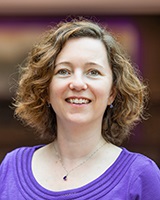Magdalena Balazinska is Professor and Director of the Paul G. Allen School of Computer Science & Engineering at the University of Washington. Magdalena’s research interests are in the field of database management systems. Her current research focuses on data management for data science, big data systems, cloud computing, and image and video analytics. Prior to her leadership of the Allen School, Magdalena was the Director of the eScience Institute, the Associate Vice Provost for Data Science, and the Director of the Advanced Data Science PhD Option.
People
Faculty

David Beck
David Beck is a Research Associate Professor in Chemical Engineering at the University of Washington (UW), a Senior Data Science Fellow and Director of Research and Education for the eScience Institute. Founded in 2008, UW’s eScience Institute serves to advance data-intensive discovery in all fields from the humanities to science, engineering and medicine. Dr. Beck’s research explores the intersection of molecules and data science, or molecular data science, and its applications to energy, environment and health. Beck is the associate director of the NSF Research Traineeship Data Intensive Research Enabling Clean Tech (DIRECT) and a founding member of the Engineering Data Science Institute (EDSI) at UW. He is an adjunct faculty in the Paul G. Allen School for Computer Science and the Department of Environmental and Occupational Health Sciences and coordinates the UW Data Science Seminar.
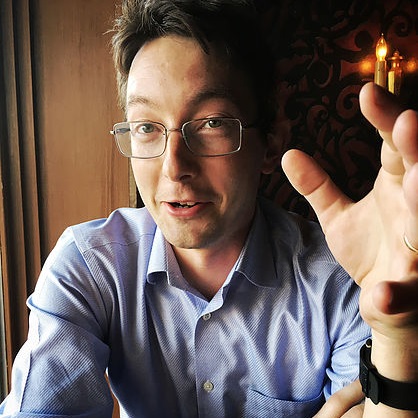
Steven Brunton
Steve Brunton is an Associate Professor of Mechanical Engineering at the University of Washington, where he is also Adjunct Associate Professor of Applied Mathematics and a Data Science Fellow at the eScience Institute. Steve received the B.S. in mathematics from Caltech in 2006 and the Ph.D. in mechanical and aerospace engineering from Princeton in 2012. His research combines machine learning with dynamical systems to model and control systems in fluid dynamics, biolocomotion, optics, energy systems, and manufacturing. He is a co-author of three textbooks, received the Army and Air Force Young Investigator Program awards, the Presidential Early Career Award for Scientists and Engineers (PECASE), and he was awarded the University of Washington College of Engineering junior faculty and teaching awards.

Kevin Jamieson
Kevin Jamieson is an Assistant Professor in the Paul G. Allen School of Computer Science & Engineering at the University of Washington, and is the Guestrin Endowed Professor in Artificial Intelligence and Machine Learning. Jamieson’s research explores how to leverage already-collected data to inform what future measurements to make next, in a closed loop. Such active learning can extract considerably richer insights than any measurement plan fixed in advance, using the same statistical budget. His work ranges from theory to practical algorithms with guarantees to open-source machine learning systems and has been adopted in a range of applications, including measuring human perception in psychology studies, adaptive A/B/n testing in dynamic web-environments, numerical optimization, and choosing hyperparameters for deep neural networks.
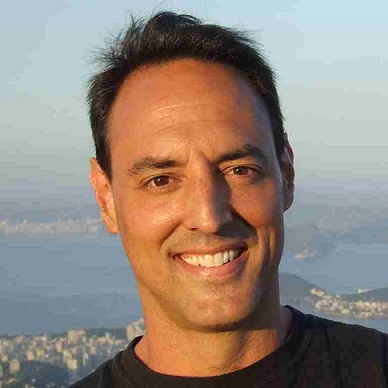
Nathan Kutz
Nathan Kutz is the Yasuko Endo and Robert Bolles Professor of Applied Mathematics at the University of Washington, having served as chair of the department from 2007-2015. He has a wide range of interests, including neuroscience to fluid dynamics where he integrates machine learning with dynamical systems and control.

Jonathan Liu
Dr. Liu’s Molecular Biophotonics Lab focuses on the development of optical imaging strategies for clinical applications, primarily in oncology. For example, the lab develops miniature microscopes for surgical guidance and larger devices for nondestructive 3D pathology. Major efforts are underway in machine learning for the analysis of large microscopy datasets for clinical decision support (precision medicine). Dr. Liu also helps to teach the Engineering Innovation in Medicine (EIH) biodesign program at UW.
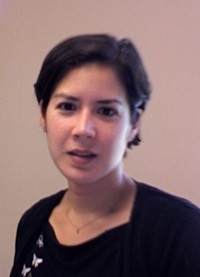
Christine Luscombe
Christine Luscombe received her first degree in Natural Sciences (Chemistry) at Trinity College at the University of Cambridge in the UK. She joined Professor Andrew Holmes’ and Dr. Wilhelm Huck’s groups in the Melville Laboratory for Polymer Synthesis at the University of Cambridge. In 2004, she became a postdoctoral fellow in the laboratory for Professor Jean M. J. Fréchet at the Department of Chemistry at UC Berkeley. She became an Assistant Professor at the Materials Science and Engineering Department at the University of Washington in 2006, and was promoted to Associate Professor in 2011. She has been the Robert J. Cambell Development Professor since 2017. Her research ranges from small molecule to polymer synthesis and is directed towards the design, synthesis, and applications of functional macromolecules. Current topics of research include semiconductor polymer synthesis for photovoltaic applications and for flexible electronics.
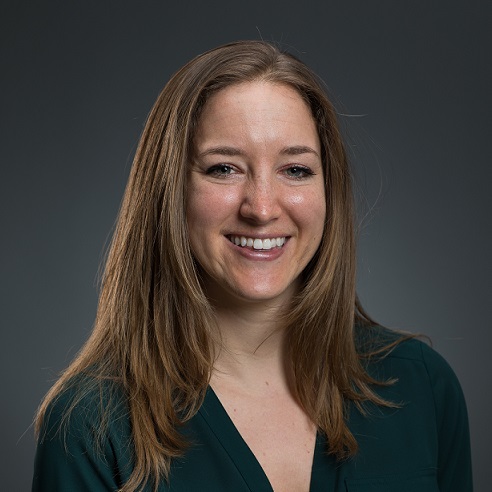
Elizabeth Nance
Dr. Elizabeth Nance is the Clare Boothe Luce Assistant Professor of Chemical Engineering at the University of Washington, with an appointment in Radiology and affiliation with the UW Center on Human Development and Disability. Elizabeth received her Ph.D. from Johns Hopkins University in Chemical & Biomolecular Engineering and completed a postdoc in Anesthesiology and Critical Care Medicine, with a research emphasis in neuroscience, at Johns Hopkins School of Medicine. Her research at UW develops methods to understand the developing brain’s response to injury or disease, and engineers nanotherapeutic platforms to treat brain disease.
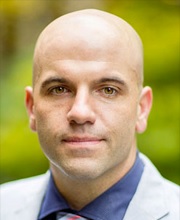
Jim Pfaendtner
Jim Pfaendtner is the Connie and Steve Rogel Endowed Professor, and Department Chair of Chemical Engineering and Professor of Chemistry at the University of Washington. He holds a B.S. in Chemical Engineering (Georgia Tech, 2001) and a PhD in Chemical Engineering (Northwestern University, 2007). Additional appointments include Associate Vice Provost for Research Computing, Senior Scientist at the Pacific Northwest National Lab, and Senior Data Science Fellow at the UW eScience Institute. Jim’s research focus is computational molecular science and his recent teaching interests are in the area of teaching data science skills to grad students in chemical and materials science and engineering.
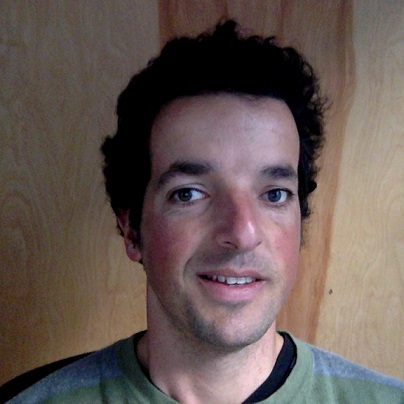
Ariel Rokem
Ariel Rokem is a Research Assistant Professor at the University of Washington’s Department of Psychology. He received a PhD in neuroscience from UC Berkeley (2010) and additional postdoctoral training in computational neuroimaging at Stanford (2011 – 2015). He was also previously a Senior Data Scientist at the University of Washington eScience Institute (2015-2020). He leads a research program in neuroinformatics, the development of data science tools, techniques and methods and their application to the analysis of neural data.
Post-docs
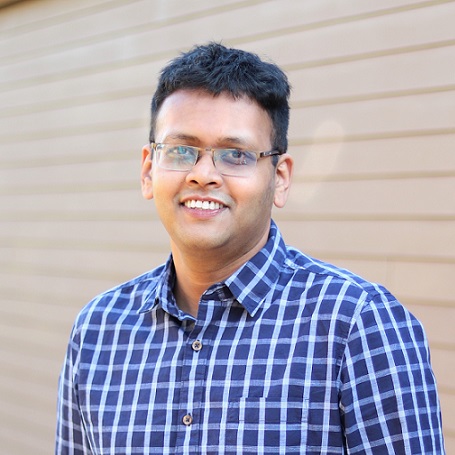
Chowdhury Ashraf
Chowdhury Ashraf is a postdoctoral research associate in Chemical Engineering at University of Washington. He completed his PhD from The Pennsylvania State University and MS from University of Illinois at Urbana Champaign, both in Mechanical Engineering. In EDSI, Chowdhury is working with Prof. Jim Pfaendtner and Prof. Dave Beck while focusing on discovery of chemical descriptors using deep learning models that lead to highly selective properties for the engineering of novel synthetic materials.
Students
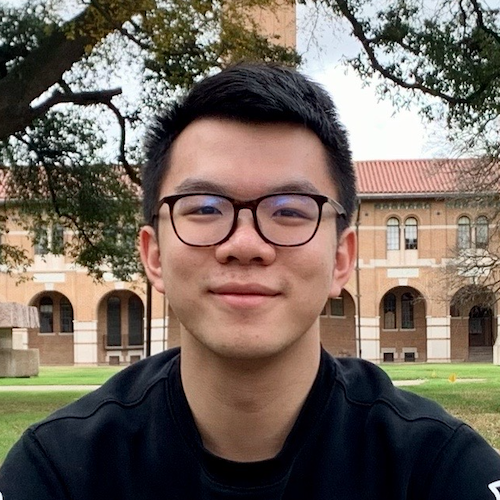
Dong He
Dong He is a PhD student at the Paul G. Allen School of Computer Science & Engineering at the University of Washington, advised by Professor Magdalena Balazinska. His research interests are data management systems and data science. Before UW, he obtained a Bachelor of Science (Honors) from the School of Computer Science at Fudan University, China. He was a former “OIer” and “ACM-ICPCer.”
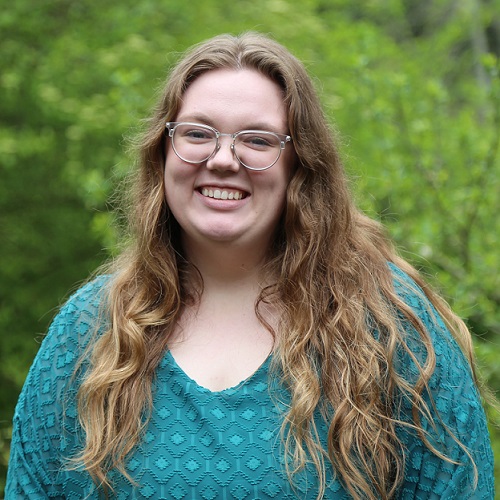
Hawley Helmbrecht
Hawley is a 3rd year PhD Student in Elizabeth Nance’s lab in the Department of Chemical Engineering. She gets the pleasure of doing her research in analyzing and quantifying brain cell morphology with data science methods. Alongside her research, she has sat as the president for the Association of Chemical Engineering Graduate Students, as a senator in the Graduate and Professional Student Senate, and on the executive board of Women in Chemical Engineering. Besides serving her department, Hawley also loves mentoring and oversees and teaches a team of six truly amazing high schoolers and undergraduates about the intersection of data science, neuroscience, and chemical engineering. Outside of work, she is either reading her way across the world (a book written by an author from every country) or teaching my cat new tricks (she just learned to high five).
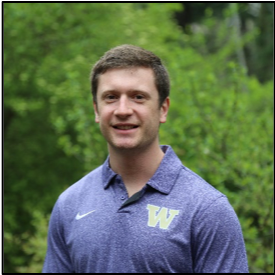
Mike McKenna
Mike is a 5th year PhD candidate in the Chemical Engineering Department focused on developing tools for enhanced characterization of the brain microenvironment. His approach leverages fluorescent microscopy to track the movement of hundreds to thousands of nanoparticles simultaneously. The methodology results in significant amounts of trajectory feature data which can be used to gain insight on various properties of the brain microenvironment. The application of data science has allowed him to get more out of the data then ever expected, and he’s excited to see where it takes this project in the future!

Robert Serafin
Robert Serafin is a current PhD student in the Molecular Biophotonics lab at the University of Washington. Prior to pursuing his PhD, Robert worked at the Allen Institute for Brain Science developing high throughput microscopy systems for cell type identification and spatial transcriptomics in mouse visual cortex. Robert’s current research focuses on developing novel lightsheet microscope systems designed for imaging large clinical specimens.

Wesley Tatum
Wesley Tatum is a recent PhD graduate of UW Materials Science and Engineering, and is now a postdoctoral researcher in the department of Chemical Engineering. Wesley’s work has focused on characterizing electronic materials and their performance from the molecular to the millimeter scale. He has also focused on developing workflows for labeling and quantifying morphology, and using that information to predict device performance.
